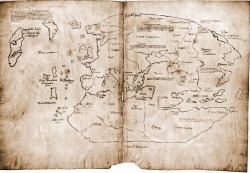Lets Rewind.
The study of History in general is a celebration of great accomplishments, events, people, and social and political evolution. Significant dates, revolutions, and wars can often to be accredited to hard work and sources of unhappiness. What are not often taken into account are the many instances of serendipity that either help or hurt along the way. Here are some of these instances that particularly stood out in our eyes.
Ancient Civilizations
For as long as chance and serendipity has played a part in the story of our planet, so has the fascination with the subject. When out present mathematical and science abilities were not available, ancient people needed a way to explain the world around them, using signs, gods, and superstitions as explanations for concepts we now call probability, and in many cases, weather. Some of these include the Greek goddess Tyche, goddess of luck, and the Roman's Fortuna.
Games of chance were a popular past time dating back to the Neolithic period. Amir D. Aczel calims that "at about the same time the earliest societies were being formed, man started playing ur-craps." Pictured to the right are astragaloi, their form of dice made of sheep bones. Instead of 6 equal sides, it had 4 equal square sides with 2 flattened sides. This created difficulties for the dice to land on those 2 sides, therefore they betted on the 4 outcomes that could appear. These dice were used in Greek and Roman cultures as well, even after our modern die came into being. Oracles, people who supposedly had the talent of expressing the gods advice and wisdom, used dice to answer important questions. Certain numbers would represent a Venus, which meant yes. This practice of looking to dice for religious guidance existed long after the Greco-Roman era. Venturing outside the European continent, the Chinese used Arapho stick die during a game where the more that crossed, the more points you recieved.
Games of chance were a popular past time dating back to the Neolithic period. Amir D. Aczel calims that "at about the same time the earliest societies were being formed, man started playing ur-craps." Pictured to the right are astragaloi, their form of dice made of sheep bones. Instead of 6 equal sides, it had 4 equal square sides with 2 flattened sides. This created difficulties for the dice to land on those 2 sides, therefore they betted on the 4 outcomes that could appear. These dice were used in Greek and Roman cultures as well, even after our modern die came into being. Oracles, people who supposedly had the talent of expressing the gods advice and wisdom, used dice to answer important questions. Certain numbers would represent a Venus, which meant yes. This practice of looking to dice for religious guidance existed long after the Greco-Roman era. Venturing outside the European continent, the Chinese used Arapho stick die during a game where the more that crossed, the more points you recieved.
The Rosetta Stone

The Rosetta Stone is an multilingual slab of stone which features two forms of hieroglyphics and Greek. It is dated back to the Ancient Egyptian era. By using the Greek part, which stated a royal edict of Pharaoh Ptolemy V Epiphanes dating back to 196 BC, translating and understanding the language of theAncient Egyptians was made possible after being lost for centuries. So how is any of this serendipitous? Its all in the discovery.
In 1799, Napoleon Bonaparte was busy capturing and securing the Nile Delta in an effort to hurt his life-long enemy's trading system, Britain. During the renovation Fort Julian, appropriately located in Rosetta on the NIle River, Lieutenant Pierre- Francois Bouchard found the stone in the foundation of an ancient wall. Many people define serendipity as discovering something when looking for something else. Although Napoleon did not succeed in defeating the British army, he certainly did not go home empty-handed.
In 1799, Napoleon Bonaparte was busy capturing and securing the Nile Delta in an effort to hurt his life-long enemy's trading system, Britain. During the renovation Fort Julian, appropriately located in Rosetta on the NIle River, Lieutenant Pierre- Francois Bouchard found the stone in the foundation of an ancient wall. Many people define serendipity as discovering something when looking for something else. Although Napoleon did not succeed in defeating the British army, he certainly did not go home empty-handed.
Discovery of the Americas
Just imagine if this accident didn't happen..
This one doesn't take too much thought, since it has been drilled into all of our heads from every history teacher since pre-k. Columbus sailed west searching for a new route to the orient, and instead found the chunk of land that makes up our country, therefore why we mistakenly call Native Americans Indians.
Royston M Roberts, author of "Accidental Discovery in Science", makes an important note about whether this long considered example or serendipity is truly serendipitous. He sticks with the original definition of serendipity, that there must be an aspect of sagacity ( link it to finished misc page) involved to be serendipitous. Because Columbus died without knowledge of what he had found and without making any profit off of it, one can hardly call him fortunate or wise, considering he did not appreciate the greatness of what he had found. Therefore, it is safe to say that although it may not have been a serendipitous discovery, its future rose to profit more than Columbus could have ever imagined.
This one doesn't take too much thought, since it has been drilled into all of our heads from every history teacher since pre-k. Columbus sailed west searching for a new route to the orient, and instead found the chunk of land that makes up our country, therefore why we mistakenly call Native Americans Indians.
Royston M Roberts, author of "Accidental Discovery in Science", makes an important note about whether this long considered example or serendipity is truly serendipitous. He sticks with the original definition of serendipity, that there must be an aspect of sagacity ( link it to finished misc page) involved to be serendipitous. Because Columbus died without knowledge of what he had found and without making any profit off of it, one can hardly call him fortunate or wise, considering he did not appreciate the greatness of what he had found. Therefore, it is safe to say that although it may not have been a serendipitous discovery, its future rose to profit more than Columbus could have ever imagined.
Gander Newfoundland on 9/11
This year, during the Vancouver Winter Olympics, Tom Brokaw did a wonderful documentary on the small town of Gander Newfoundland, Canada. Sadly, it is not on the internet, but if it is ever replayed we encourage not to change the channel. Why this town? Why not a bigger city, such as Montreal or Quebec? Because this small town was probably the only shining light on the day that America lost their sense of safety and devastation reached new heights, September 11, 2001. When the call came out that all flights had to land safely and as quick as possible, except for military planes. As this occured, 39 transatlantic flights were redirected to Gander International Airport. The frazzled and scared travelers knew little about the place they would be spending the next 3 days, but they were sure to be overwhelmed by kindness and hospitality. This town didn't flinch one bit as their population grew by 7,000, and as the author of the blog "My Permanent Record", Geoff Fox, says "They opened their schools, homes, and wallets." Stores allowed the new guests to take clothes without payment, people offered their homes for bathing purposes, and families cooked meals for the refugees. The documentary covered few personal stories of meaningful connections made during that short time of shock and grief around the globe. One was of an English man and a woman from Texas who fell in love and got married the following year, in Gander. One was of a couple who's son was a NYC firefighter, and while waiting to hear if he was among the missing created a lifelong friendship with a Gander resident who lost a child and could sympathize. People redirected there on that hateful day are still so appreciative, many of them have created funds for their school and visit annually. If the tragic events of 9/11 did not occur, this incredibly giving town may have been overlooked forever, which is just another example of the serendipitous belief that out of all bad comes something good.
A History Of Wars
It is interesting to think that the world's history of violence could be attributed to just one bullet shot; the breaking point of World War 1. After speaking with educator and holocaust survivor Jay Sommer, he gave us a better understanding of how this could really be true. Jeffrey Kluger, the man behind the Simplexity Theory, explains this in further detail in his video on our Philosophy page. Check it out!



